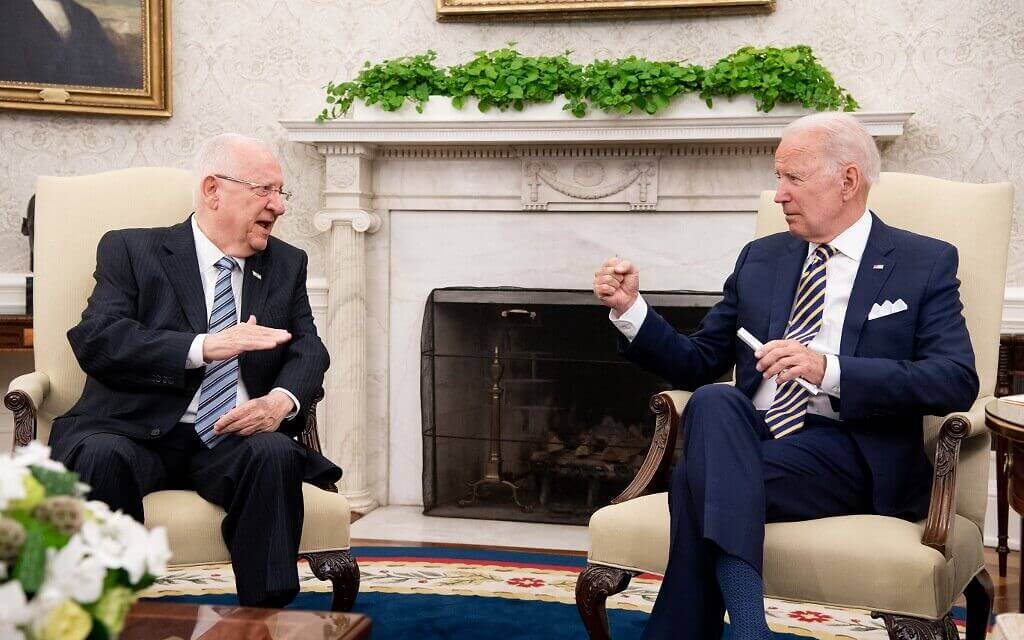United States (US) President Joe Biden met his Israeli counterpart Reuven Rivlin at the White House on Monday, his first meeting as President with a top Israeli official.
“I just want to thank the President for being here and for your dedication to strengthening the relationship between the United States and Israel,” Biden said in a short interaction with the press at the Oval Office, ahead of a closed-door meeting with Rivlin.
As per news reports, Biden told Rivlin that the US’ commitment to Israel is “ironclad” and “If there weren’t an Israel, we’d have to invent one.” Moreover, he affirmed that Iran would not be allowed to develop nuclear weapons that threaten Israel’s security. “What I can say to you is that Iran will never get a nuclear weapon on my watch,” Biden said.
In addition, Biden mentioned the recent US airstrikes targeting facilities that Iran-backed militia groups used near the border between Iraq and Syria. He claimed it as a token of his goodwill for Israel and commitment to the security of the Jewish nation.
In response, Rivlin said he was “really delighted to be here, once again, in the White House, and with the President of the United States.” He added, “Of course, I want to repeat what we know very well: Israel has no greater friend and ally than the United States of America.” The Israeli President remarked that though the two countries may not agree on every issue, their shared values of “democracy” and “liberalism” are common aims and goals that put Israel and the US on a natural path of friendship.
The meeting is iconic as it sets the tone for a new era of bilateral relations between the two countries that aim to form new strategies, unlike the previous governments. Earlier, former American President Donald Trump and former Israeli Prime Minister Benjamin Netanyahu’s alliance and ‘bromance’ caused partisan divisions within both countries.
Biden, however, has time and again shown that he focuses on pragmatic diplomacy rather than rhetoric and aggression. On the other hand, Israeli Prime Minister (PM) Naftali Bennett’s new government was formed in mid-June, unseating Netanyahu after four deadlocked elections. Biden said his administration is “already working closely with the Israeli government that took office earlier this month.”
While Netanyahu was a far-right leader, Bennett is a religious ultranationalist who is unlikely to change foreign policy as the PM for two years. However, after two years, the centrist Yair Lapid, a former journalist who now serves as the Israeli Foreign Minister, will take over as the PM. This leadership change is likely to initiate alterations in Israel’s international approach and policy towards Palestine.
Recently, the White House press secretary, Jen Psaki, hinted that a summit between Biden and Benett is in the pipeline, saying, “We’re working on a date but don’t have anything to preview at this point.” However, during an interaction with Rivlin on Monday, Biden mentioned that his meeting with Bennett would be “very soon.”
Biden Reaffirms US’ Commitment to Israel, Vows Iran Won’t Acquire Nuclear Weapons
US President Biden reassured Israel's President, Reuven Rivlin, of the United States’ ironclad support and vowed not to let Iran develop nuclear weapons.
June 29, 2021

US President Joe Biden and Israeli President Reuven Rivlin (L) hold a meeting in the Oval Office of the White House in Washington, DC | SOURCE: TIMES OF ISRAEL
